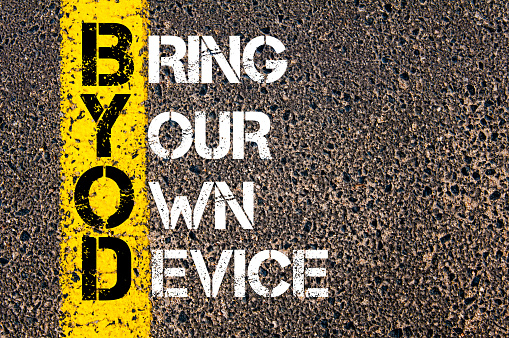By Rick Delgado
You could say the honeymoon is over for bring your own device (BYOD) policies. For years, businesses have been adopting BYOD as a way to help their employees become more productive and more satisfied with their jobs while the company saves money. Sure, the strategy came with its own share of risks and challenges, but for many, the benefits outweighed the downsides. But as BYOD has become more widespread, so too have the controversies surrounding it. Some of those challenges have even been taken to the courtroom as former employees sue their companies over issues with using personal devices on the job. Recent court rulings have helped to define how companies should approach BYOD policies in the future while also outlining what organizations need to avoid if they don’t want to get caught up in a tangled legal mess.
Employee Compensation
Perhaps the most prominent court ruling regarding bring your own device happened in August of 2014. The court case involved the issue of reimbursing employees for using their personal devices for work-related tasks. The decision from the California Court of Appeal essentially made it so companies would have to reimburse workers for any calls made for their jobs on a personal mobile phone. How much to be reimbursed wasn’t precisely defined, but the court stated the reimbursement would have to be a “reasonable percentage” of the worker’s phone bill. This obviously leaves it open for interpretation, which could cause confusion and conflict among BYOD companies.
The true impact of this ruling may still yet be felt. Some experts go the dramatic route, calling it the nail in the coffin for BYOD policies nationwide. Considering the extra money companies would have to spend reimbursing employees, many businesses would likely avoid BYOD altogether. Other experts take the more cautious approach, saying the ruling is only for actual voice calls and only applies to the state of California. However, even the more cautious among them admit that it wouldn’t take much for reimbursements to be applied to data fees and that California has now set a precedent other states are likely to follow.
Privacy Rights
Another court ruling from Texas could have a big impact on BYOD as well. This case involved a former employee suing a business that wiped all his personal data from his mobile phone after he left the company. The remote wiping was done in an effort to protect company data on the device. In this case, the court actually ruled in favor of the company, stating that there wasn’t enough evidence to prove the employee had suffered personal damages and that the worker didn’t demonstrate enough effort to back up his personal information. It was also determined that no violation of privacy rights had occurred. The ruling was made even though the company did not have an established BYOD policy.
While businesses may feel encouraged by the Texas decision, the ruling only serves to underline the importance of creating a BYOD policy that addresses what will happen once an employee leaves the company. Remote wiping is often a necessary security measure in order to protect potentially sensitive information. Employees that sign a BYOD policy that explains the remote wiping function will have little standing if the case is brought to court.
Overtime Pay
At the same time, another court case illustrates that the law is not always on the business’s side. This case involved a worker suing the employer for unpaid time he spent conducting business on his personal device after normal business hours. The court decided in favor of the employee, forcing the company to reimburse him for overtime. The issue of doing work on a personal mobile device outside of work is one that won’t go away soon. Companies should learn from this case and ensure BYOD policies only apply to employees who aren’t paid by the hour, or exemptions could be made based off of the type of work being conducted.
If there’s one overlying message revolving around all of these cases, it’s the need for businesses to create a clear BYOD policy that addresses all the potential issues and problems. Those declaring the death of BYOD are perhaps overreacting, but if organizations do nothing in response to these rulings, more pain is likely in the future. Clear communication is necessary to help employees understand what the BYOD policy is for and how it should be used. Signing the policy is a crucial step as well. A good BYOD policy won’t always help companies in court, but it’s the first big step to ensuring they don’t get caught unprepared.
Rick Delgado is a technology commentator and writer. Follow him @ricknotdelgado.







